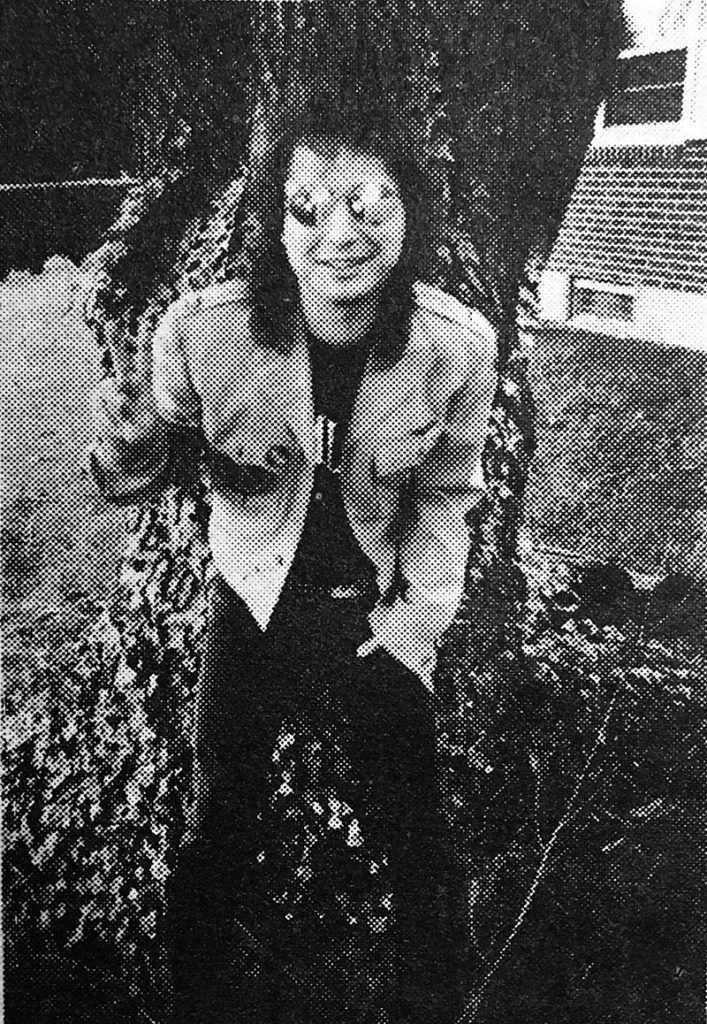Rudy Rubini — 1958-1994

By GREGG KIRK
February 1994, Big Shout Magazine

Playing music is a privilege. Some people take it lightly, but I don’t. I think playing music is the greatest gift in the world, and I take it very seriously.— Rudy Rubini
The above quote appeared as an epigram to a story that was published in the October 1989 issue of this magazine when we ran a profile of Rudy Rubini and showcased his band. Unfortunately, it also appears in this month’s issue as an epitaph. At approximately 2 p.m. on Sat., Jan. 28, Rudy Rubini died in St. Francis hospital in Wilmington, DE after suffering from pneumonia and an ensuing diabetic coma. He was 36 years old.
“Rudy Rubini: The Roots Run Deep,” was the headline to the story that ran in 1989, in reference to the fact that the musician/producer had so many musical connections in the Delaware Valley. Indeed, in the amount of time that has passed since that year, Rubini’s musical roots branched all the way across the country. It is not an overstatement to say that his passing will have a major impact on many musicians and music-industry types from coast to coast.
His resume and list of former bandmates and business associates reads like a local and national Who’s Who. After kicking around in a handful of incidental bands after attending college at the University of Delaware, Rudy formed The Imports in 1982 with his brother Ritchie on drums. A revolving membership of guitarists saw such local luminaries as Pete “Eggman” Smith (who moved on to play with Robert Hazard as one of the original Heroes), Dean Wilson (who left to form Honour Society), and Tommy Conwell, who joined in a later incarnation of the band called Radio Caroline.
After a stint as the frontman of his self-named group, Rudy immersed himself in studio production, while Ritchie moved on to play drums with such acts as Honour Society, Montana Wildaxe, and Matt Sevier. Under the production of Lance Quinn at the Warehouse Studios in Philly, Rudy logged many hours recording background vocals for such artists as Lita Ford, Nils Lofgren, April Wine, Miles Goodwin, and Skid Row before he set out on his own to record a number of local area acts including Montana Wildaxe, Tom Larsen, and Matt Sevier. In the weeks before he died, Rubini had garnered a possible major-label record deal for Wilmington natives the Caulfields and was slated to take them into the studio as well as local noise band Shovelhead.
Because I am a member of the latter band, I was in constant contact with Rudy right up to the point that he fell ill. In fact, to my shock and amazement, Rudy was hospitalized only two days after he and I had had an animated discussion on production ideas and studio scheduling.
“You’re still into this thing aren’t you, man?!” he practically shouted through the phone when I apparently didn’t show enough enthusiasm for the project. “We’re gonna make this thing fuckin’ wild. It’s gonna be sick!” After he hung up, I couldn’t help but feel pumped up about the whole thing. His enthusiasm was overwhelming. Two days later, he was in a coma and admitted to the intensive care unit.
There are many people who are going to miss his over-enthusiasm, his in-your-face camaraderie, his speech peppered with “babe” and “ciao,” his wild hand gestures, and not the least of all — his musical and production skills.
Yes, Rudy Rubini’s roots ran deep in this area, possibly more so than any single musician in Delaware. It was a privilege to know him.